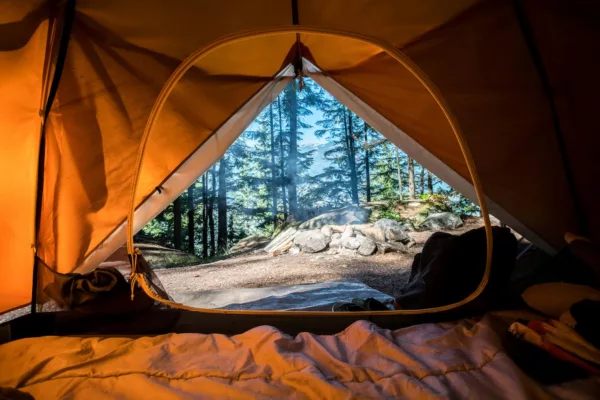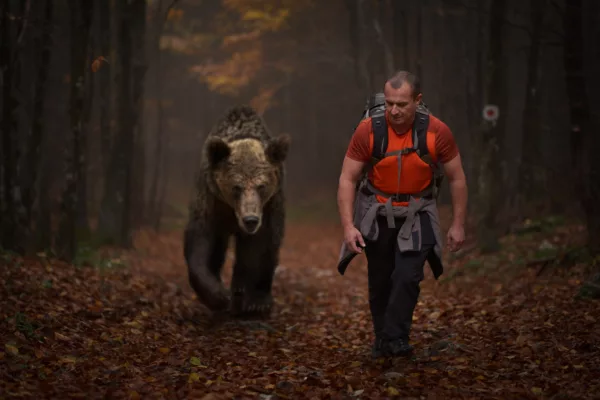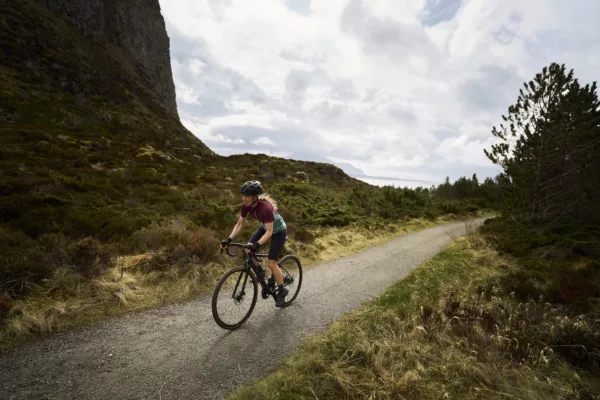Gadd’s Truth: Lessons I Learned from My Heroes

Every sport has heroes, stars and visionaries—those seemingly uber-talented individuals who re-set the bar, over and over again.
During the past 20 years, I’ve been lucky enough to connect with a number of the leaders in my world. Each taught me something I use every time I go into the mountains, whether with my kids or while trying a difficult new route.
Ueli Steck
Ueli made a name for himself as “The Swiss Machine,” after a seemingly impossible (but filmed) speed record up the Eiger, in Switzerland—four hours for a route that until recently commonly took four days—as well as for wild new routes in the Himalayas and many other lung-busting feats that had once seemed “impossible.” And yet he has also excelled technically, coming closer than anyone else in history at free-climbing Yosemite’s El Capitan from the bottom to the top without falling, first try. That’s like winning the cross-country running championships and the power-lifting competition—you just don’t do that. He has also fallen off and hit the ground more than anyone else I know. His physique tends toward pudgy. I first met him when he was around 20 years old, and really liked him, but I didn’t think he’d ever amount to much as a climber because genetics simply were not on his side. But what Ueli had was desire—a hunger flashing in his eyes to be great at what he did. He also wanted to be strong. And so he became both great and strong, one crazy training session at a time. Without hunger, talent is irrelevant; with hunger, talent can be hunted down one training session at a time.
Michael Champlin
Michael Champlin flew more long glider flights than any other pilot in the world, year after year. He and I spent months chasing world flight-distance records together. We were based in Hobbs, New Mexico, which is hot, flat and right on the edge of Tornado Alley. Every day, we towed into the sky behind a truck and tried to fly farther than anyone else ever had. Every night we would talk about why we hadn’t set a world record that day, and what we could do differently the next day. Often, weather was the cause (we wanted good lift, but there’s a fine line between a good thermal and a tornado), and I learned a tremendous amount about how to fly in difficult air. I still hear Michael’s voice in my head when chasing an elusive thermal. But what I really learned is that you have to show up to go far, and you never know what the day will bring until you try. I vividly remember Michael and I getting ready to fly on a day I didn’t think would be any good. Michael said, “It either is or it isn’t, but if it is and you miss it, you’re going to hate it.” That day I set a new paragliding world distance record. No matter what sport I’m doing, I’ve learned to go out and try, if that’s what I’m there to do. Conditions are decent a lot more often than you think—and every failure is an opportunity to learn how to not fail.
Jeff Lowe
Jeff Lowe redefined alpine climbing, rock climbing, big-wall climbing and sport climbing and is still remarkably durable for a man suffering from a rapidly progressive ALS-like disease. Five years ago, he was given weeks—at most—to live. I spoke with him on the phone yesterday, and although he’s not well, he’s still doing what he has done for his entire life: see the way forward. In every era of his life, and when faced with what often seemed like insurmountable odds, Jeff found a way to move forward. He was often in financial trouble, stuck on top of a mountain, or otherwise in a place where others would see few options. Jeff always saw a way out. Nearly every mountain range in the world has an obviously beautiful line (or three) that Jeff put up, often solo, and that all the locals had overlooked but Jeff imagined into reality. Jeff can see climbing lines, patterns in avalanche chaos and potential that others simply don’t. At first, I thought this was an innate talent, like those kids who can count all the gumballs in a jar at a glance. But it’s not. Jeff has practised imagining lines and solutions his entire life. His imagination, not his work ethic or skills, is what took Jeff literally to the top, time after time. I look at blank walls now and hear Jeff’s voice, “Well, there really are no totally blank walls…” Imagination can be trained, and used to produce real results.
Jim Orava
Jim Orava has spent more than 30 years paddling wild first descents and flying his paraglider in the most remote mountain ranges in the world. When I was growing up in Jasper, Alberta, there were two groups of paddlers: The Jasper Kayak Club and “The Crazies.” Jim Orava was a “Crazy”—even 30 years ago he was willing to paddle drops (with his crew of uber-talented friends) that no one else would. I had great mentorship from the Jasper Kayak Club, for which I am immensely grateful, and then I started paddling with The Crazies. On one of the first runs, I flipped and kept struggling to roll in the brutally cold glacial water before becoming stuck on a rock, sideways and upside down. My boat filled with water and collapsed around me when I pulled the spray skirt to try to swim free. I managed to struggle out when Jim smashed my boat off the rock with his, but it was a close call and a bad experience. On the shuttle ride home (which I was driving even though I was 14), Jim said, “Your roll sucks. Never, ever, ever swim. It doesn’t get better when you swim. Learn how to roll properly before you paddle with us again.” I took that lesson to heart, and spent the summer learning how to roll, occasionally with Jim’s direct feedback (“still sucks”). I had my girlfriend stand in the water and flip me randomly while my paddle was in random positions. I had two of my bigger high-school friends stand on either end of the boat, flip me, then try to keep me underwater, sometimes gleefully smacking me in the side of the head to simulate my head hitting rocks. I learned to roll anywhere, anyhow, anyway and in any conditions. During the next 20 years of paddling hard rivers around the globe, I only swam once, and almost died to prove Jim’s ethic, but I stayed in my boat and many more times I owed my survival to Jim’s words. I applied the lesson of learning the craft (and never giving up) to paragliding, ice-climbing, skiing and every other sport I’ve done. Learn the craft of a sport until it is second-nature and never give up, even if you’re getting beat up.
There are a hundred more mentors and people who taught me about mountain sports, and I’m grateful for every bit of their knowledge. Today, I still always learn from my partners—whether I’m guiding an easy ice route or standing in line with the best in the world at a competition. So, watch out, that pudgy kid running stairs like a dog chasing a rabbit might be the next Ueli Steck.
Or maybe it’s you?














